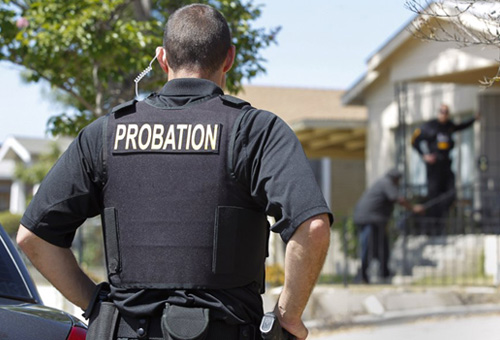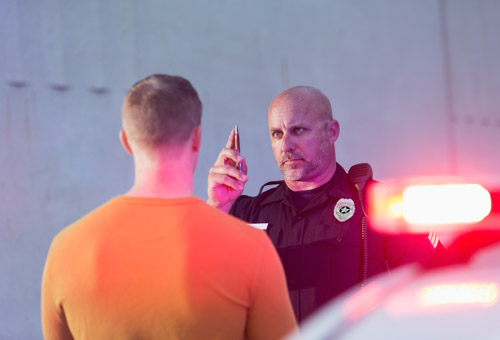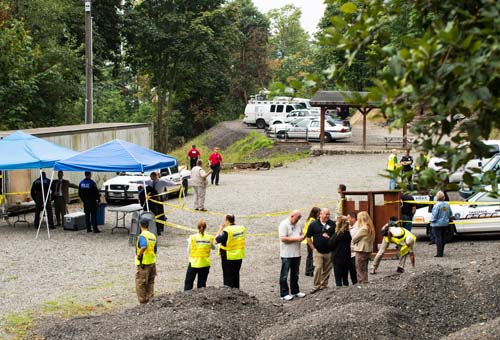


Child Sex Trafficking (CST) is a crime that is hidden yet in plain sight. First responders are often the first system members to make contact with a CST victim. A CST victim has been heavily groomed for system contact, is fearful of their trafficker, and often not forthcoming about their exploitive situation. Deconstruct the crime of CST and identify common scenarios in which you may come in contact with a CST victim. Discover victim-centered contact practices you can implement which are specific to CST victims. Recognize how to secure vital evidence which may only be available during your initial contact with the victim. Practice group exercises and develop contact and response plans to common scenarios you may encounter.

Join us for an intensive training focused on understanding and building relationships between the forensic pathologist, homicide investigator, and prosecutor in successfully investigating and prosecuting child homicide cases. Learn autopsy protocols, forensic essentials, and the criticality of determining the cause and manner of death. Understand the unique aspects of investigating a child homicide including interviewing and interrogation, suspect pool development and the role and importance of the prosecutor in gaining appropriate convictions.

Gather up-to-date information for the investigation and prosecution of all types of child abuse cases utilizing a multidisciplinary team (MDT) approach. Learn about medical evidence, interviewing child victims/witnesses and adult suspects/witnesses, along with legal issues involved in the investigation and prosecution of child physical and sexual abuse cases. Discuss trends in offenders’ use of technology, the use of child sexual abuse material (CSAM), and sextortion. Learn law enforcement investigative techniques that capitalize on new technology.

Explore the challenges involved with no body homicide investigations. Most start as missing persons cases; the suspect’s head start coupled with the absence of the victim’s body leaves gaping holes in the investigation. Join us to hear from experienced instructors as they provide the framework and tools to build a prosecutable circumstantial case—regardless of the age of the case—from proving the victim is dead using established practices such as victimology, interviews, documents/records/digital footprint to search strategies and best practices in documentation. This training will also provide established prosecution strategies that maximize the likelihood of success. During instruction, there will be an opportunity to share your case as a class participation case study exercise.

The Officer Safety Training offers probation officers with an opportunity to practice skills to effectively resolve disturbances that may arise in community supervision, home visits, search and seizure, and in the courtroom setting. During the 2.5 day training, officers will review the disturbance resolution model, a tool used to assess situations, as well as various communication techniques to de-escalate situations. Officers will also explore legal justifications for using force, situational desirability, and threat assessment opportunities. This is part of a 2-part, week long training for TPA and TPRA graduates, you may also want to register for the secondary training when register for your first one.

Explore techniques to recognize drug influence when conducting home visits, search and seizure, or during other interactions with probationers. Develop the critical skills to recognize common paraphernalia and the signs and symptoms of persons under the influence of stimulants, hallucinogens, opiates, cannabis, alcohol, depressants, inhalants, and dissociative anesthetics through hands-on instruction. This is part of a 2-part, week long training for TPA and TPRA graduates, you may also want to register for the secondary training when register for your first one.

In the initial response to endangered missing or child abduction incidents, accurate and timely situational assessments and immediate resource deployment are critical. During this training, first responders will gain knowledge of the investigative activities that occur during an endangered missing or child abduction investigation, and how their actions influence the short- and long-term response of law enforcement. Learn the impact the missing and or abducted child incident has on the family and how this can impact your response. Examine the critical and necessary first steps for first responders, initial supervisory, and investigative response. Gain best practices strategies for search and canvass implementation.

Improve investigative techniques and prosecutorial efforts needed to successfully decipher unresolved and cold cases. Explore essential investigative, forensic and prosecution methodologies through the dissection of actual cases, best practice examples, interactive discussions, and contemporary resources. Learn proven strategies to avoid complications that are detrimental to the prosecution of cold cases. Discuss practices relevant to the establishment and maintenance of an efficient cold case unit.

Take steps toward implementing a successful CART by bringing together a team of experts whose knowledge, skills, and abilities will be beneficial in a child abduction case. Join us to learn how to develop a multidisciplinary CART for responding to endangered, missing, or abducted children. Hear about the impact a child abduction has on the family and learn the fundamentals of developing an effective responsive CART team. Examine incident command considerations, search and canvassing operations, CART activation, and resources to improve the response, investigation, search, and canvass activities associated with missing children investigations.

This Community of Practice session is part of a series, please see About Section below for details. Corrections work today is far more challenging than it has ever been. There are a lot of great practices and ideas about how to help clients succeed and protect communities. This series of Communities of Practice (CoP’s) is designed to provide information on issues and best practices in corrections (specifically probation and reentry professionals) working in tribal communities. Please join us to learn and share over the next several months.
